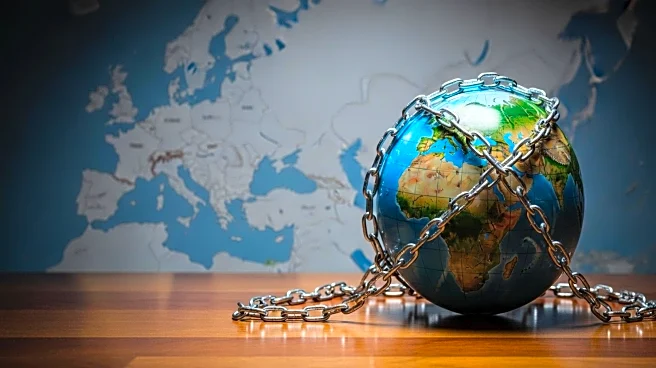What's Happening?
The European Union has announced a new set of sanctions targeting Russia's economy and energy trade. This marks the 19th sanctions package aimed at pressuring Russia to cease its military actions in Ukraine. The sanctions follow recent Russian drone and missile attacks on Ukraine and airspace violations in Poland, Romania, and Estonia. The package includes a ban on Russian liquified natural gas imports to Europe by 2027 and targets foreign firms, including those in China, to limit business with Russia. The sanctions also aim to cut off Russia's access to battlefield technologies and crypto platforms used to bypass sanctions.
Why It's Important?
The sanctions are significant as they represent a continued effort by the EU to weaken Russia's financial ability to sustain its military operations in Ukraine. By targeting energy trade and technological access, the EU hopes to diminish Russia's war funding and push for a resolution to the conflict. The sanctions could impact global energy markets and international relations, particularly with countries like China and India that have economic ties with Russia. The move also reflects the EU's commitment to supporting Ukraine and maintaining regional security.
What's Next?
The proposed sanctions require approval from EU member states, a process that could take several weeks. If approved, the sanctions will further strain Russia's economy and potentially lead to diplomatic negotiations. The EU's actions may prompt responses from Russia and other affected countries, influencing geopolitical dynamics and energy trade policies.









